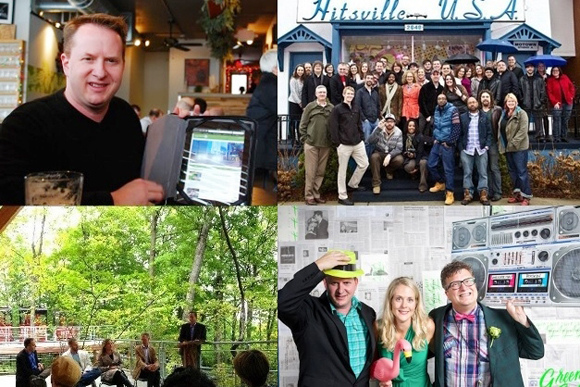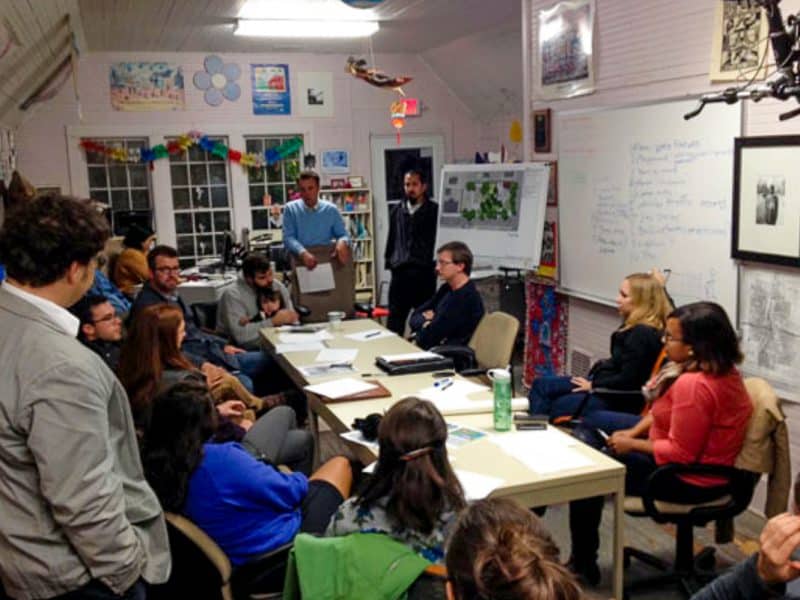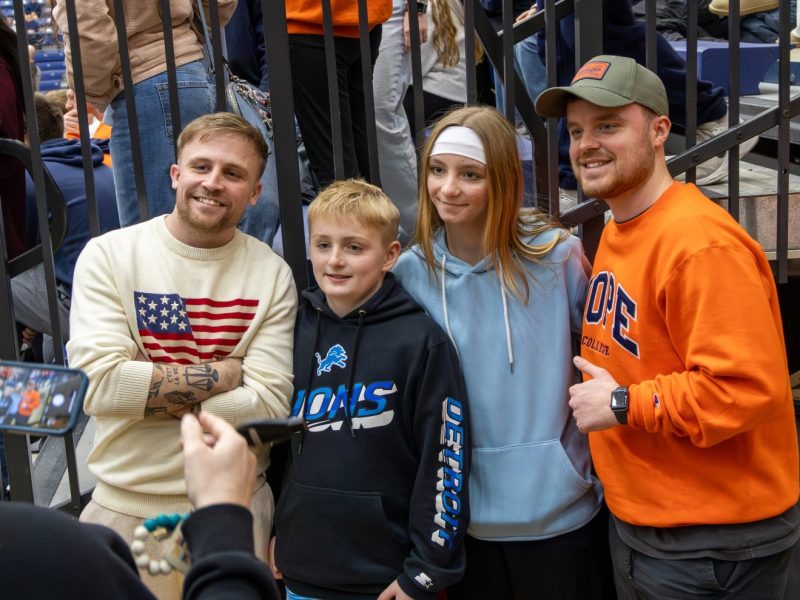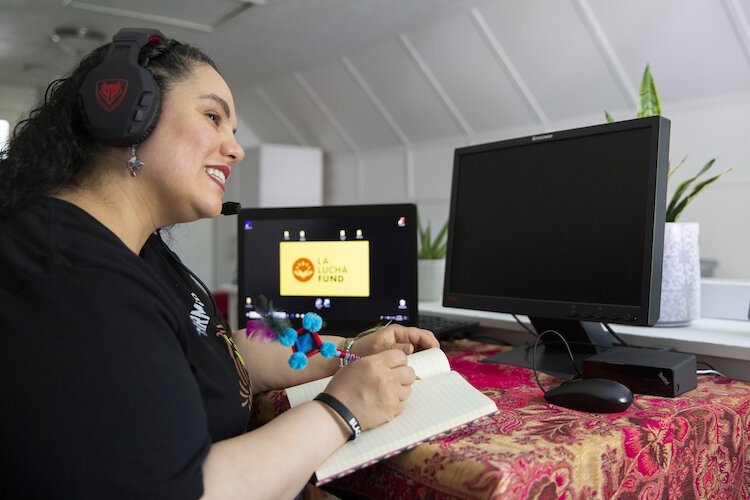Farewell, Jeff Hill: An exit interview with Rapid Growth’s publisher
Longtime Rapid Growth Publisher Jeff Hill is moving on after six and a half years of leading the publication. As he leaves, we sat down to talk with him about what's changed in West Michigan during his tenure, where we're missing the mark as a region, and what he predicts the future holds for the place we call home.

Rapid Growth: You’ve been the publisher of Rapid Growth since 2008, and you’re moving on as of this issue to focus on real estate full-time. Before you go, let’s clear up some confusion: What’s a publisher do compared to an editor?
Jeff Hill: [Laughs.] I don’t do any of the work and I take all the credit. The role of the publisher is to make sure the business is profitable, that we make money, and that we can be sustainable in the long run by identifying sponsors and partners in the community who want to be a part of Rapid Growth and helping to tell their story.
Rapid Growth: As opposed to the editor, who . . . ?
Jeff Hill: Manages the staff and budget, sets the editorial calendar, assigns and writes articles, edits copy, coordinates photography, and builds the weekly issue.
Rapid Growth: Even before you became involved with RG, you were interested in how downtown Grand Rapids – and all of West Michigan – was growing and changing into more of a modern, urban city. What changes have been the most fun to watch unfold, or stories been the most fun to tell during your tenure?
Jeff Hill: When I started I used to take a lot of pictures of downtown at different times – I was big into development projects and I was actually really excited when I would see people on the street because in ’06 and ’07 it was unusual to see pedestrians and people shopping – this was pre-Madcap and GRAM days – so it’s really exciting now to be downtown ice skating or going out for dinner or going to a show at DeVos place and seeing a much more thriving downtown area. No matter where you live in the metro area, to have a healthy and vibrant core city helps all of us.
So I think that’s been the most exciting. I think covering neighborhood level businesses like Harmony, where we’re sitting right now – if the local mainstream media covered it, it was relegated to a back page or it was very seldom that businesses like this were covered. Rapid Growth really carved a niche – even the business journal didn’t really dive into these kinds of neighborhood businesses – and it’s really exciting seeing these businesses taking an old space and turning it into a taco restaurant or a brewery. It’s by people locally putting up all their family money to make a go of their business. Now everybody is covering development news. We were like the tail wagging the dog in that respect and now all the pubs cover it.
So it’s not any one specific story. The mountain biking scene was a cool story. When we covered the cyclist who was a ghost rider, that was a really cool story. We broke the ArtPrize story. There was the moped army, which was a really interesting story we covered. Those were ones where we really established ourselves as a legit, street-level, grassroots publication with cool stories. We love to make people say, We had no idea that was going on in GR.
Rapid Growth: What were the most memorable things that happened while you were the publisher?
When we did the speaker series at the public museum on the river when there were three news channels there with their cameras set up, a group of fishermen walked into the room and everyone involved with Restore the Rapids said, oh shit this will be interesting. They just wanted a voice and they did speak up during it. I want to say it was 250 people there.
The other one was when we had planned to do a speaker series on local businesses that had recently opened on Wealthy St. and at the same time the anarchists hit the Winchester, Sparrows, and they torched that garage. And I contacted all the participants and I called it off for security concerns and I was contacted by a group of six people who said, You cannot cancel this event because we need to show we’re not afraid. So we decided not to have a panel – nobody on stage – and we held an open mic night. There were over 200 people in Wealthy Theatre, people talked about what was going on. It was scary and amazing. So the resulting discussion that evening was amazing.
When we were having a speaker series on how bike friendly is Grand Rapds and we blocked off parking spaces in front of Wealthy Theatre and had bike racks from the city. We had a meet-up at Founders first and everyone rode to the theater — there were 150 people who biked and we packed the place out. It was really cool.
I think the bus trips were life changing. People were knocking Detroit on Twitter and a bunch of us came to the defense of Detroit and said there are amazing things going on. That was the impetus to do the bus trip. A lot of the expense of that first trip came out of my pocket. It was worth it to take a group of people to see Detroit from a new perspective and come back inspired by the things that were going on there. After that, the chambers of both cities started doing the same thing. Once again, something that Tommy Allen and I came up with as an idea that had never been done before spread. Everybody lived in their own worlds with their preconceived notions of the “other” and we set to break down those preconceived notions. And if you think about it, some people who went on the bus trip, – OST, Mindscape, Atomic Object – ended up opening offices in Detroit.
Rapid Growth: You’re a development geek and a data nerd (and I say this in the nicest possible way), so based on the trends you’ve noticed in the last decade, what do you think is on the horizon for West Michigan?
Jeff Hill: I think if/when they get the river project going, redoing the riverbanks and restoring the rapids, I think people are going to be blown away by how much of a visitor attraction it is and people will look at the river as a centerpiece of downtown. It won’t be a shocker anymore to see someone kayaking in the river; it will change people’s perceptions. Once that becomes an attraction, the other things people have talked about regarding reactivating the riverfront will happen. Everyone will want to be around that water feature. People are drawn to water. And I think having a large presence by Michigan State University downtown is going to be huge too over the next 5-10 years. Between GVSU at one end of Michigan St. and MSU at the other end, I think all this talk of being a center for life sciences will actually become a reality. GR has been holding its own, but I think with those two schools having a massive presence, it will put us on the scale of a Raleigh-Durham because when we have a Big 10 school and a four-year college along with Van Andel Institute, I think finally there will be that critical mass. And we’ll all look back 20 years from now and be blown away.
Rapid Growth: From your perspective, where is West Michigan missing the mark? Where are the gaps in markets or sectors, among or between people and organizations, and the opportunities for us to make things better that haven’t happened yet? What issues need to be center stage in the next five to ten years?
Jeff Hill: I think the area is missing the diversity boat. You know, I think having a community where middle-class African Americans and Hispanics can not only feel welcome but comfortable and want to stay and put roots down . . . and the wage thing is going to be a big issue. I think too many companies in this area have not given any sizeable raises to manufacturing workers or office staff in quite some time, and I think they need to start loosening that up. Because otherwise to get people to move here, stay here . . . there might be all kinds of top ten lists and beer fests but if people can’t graduate from GVSU and get a job here and make a good living, they’re not going to stay here.
Rapid Growth: Let’s say you have 24 hours to do with as you please in West Michigan – no constraints on time or budget. What would you do to pack as much goodness as possible into your ideal day? Where would you go?
I’d probably go to the lakeshore – not the beach but I like when the girls and I go to Saugatuck, the dune climb, ride the ferry into downtown Saugatuck. Definitely golf because we have some phenomenal courses here and relatively inexpensive. Bike the white pine trail – it’s such a treasure; it needs some work but for Michigan as a state, the white pine trail is an asset that should be trumpeted more. There’s just one mix of terrain after another. You go through areas where you feel all alone. I’d go boating if I knew someone who had a boat in Spring Lake or Grand Haven. Dinner at Grove is my favorite – a late dinner. If it were winter we’d go ice skating downtown or to The Nutcracker at DeVos. We like to go to the zoo; especially with the additions they’ve made it seems like they’re constantly updating signage and seats and banners so that it doesn’t get stale. My girls love the zoo.
Rapid Growth: Relatedly, if readers miss you in RG, where can they find you around town to argue with you?
Jeff Hill: Lantern or Founders. Open up my computer, grab a beer.
Rapid Growth: We know you’re excited to dedicate more time to your real estate business. But what will you miss about working at Rapid Growth?
Jeff Hill: One really cool aspect that I’ll miss, although maybe it won’t go away, is how many people wanted to just sit down with me and pitch that they were starting a business and wanted to know what I thought of it. They didn’t ask to get an article, they just wanted to know – this is my business idea; what do you think? So that was pretty cool. That’s probably over a hundred people. For a while I would set aside 1-2 meetings a week for it even though these people weren’t going to spend money for it. But I liked it because I like to know about things before other people do.








